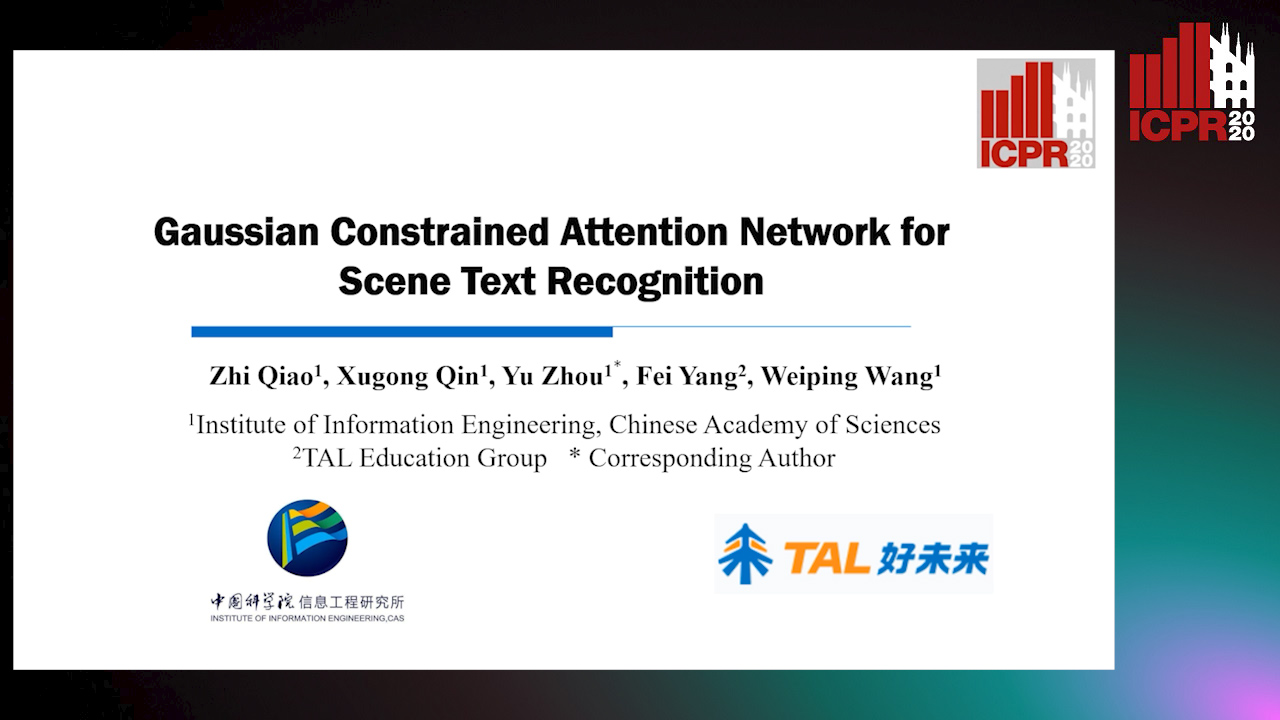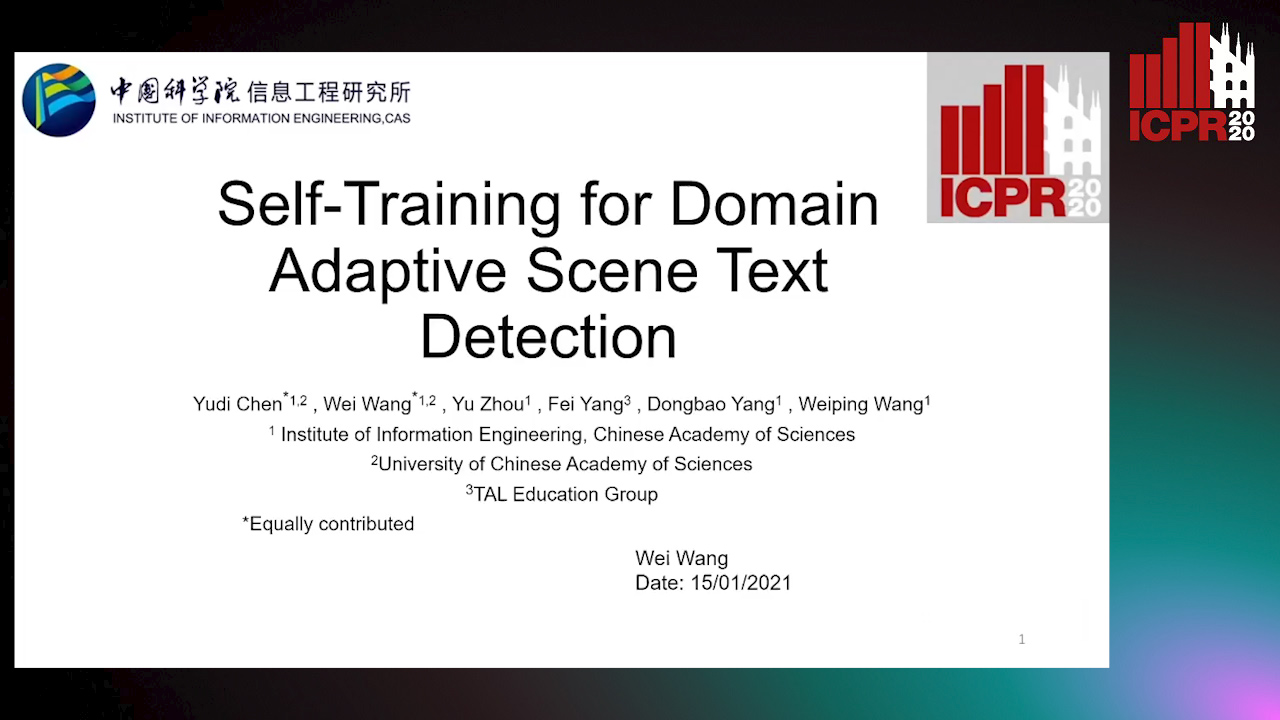Fei Yang
Papers from this author
Gaussian Constrained Attention Network for Scene Text Recognition
Zhi Qiao, Xugong Qin, Yu Zhou, Fei Yang, Weiping Wang

Auto-TLDR; Gaussian Constrained Attention Network for Scene Text Recognition
Abstract Slides Poster Similar
Self-Training for Domain Adaptive Scene Text Detection
Yudi Chen, Wei Wang, Yu Zhou, Fei Yang, Dongbao Yang, Weiping Wang

Auto-TLDR; A self-training framework for image-based scene text detection